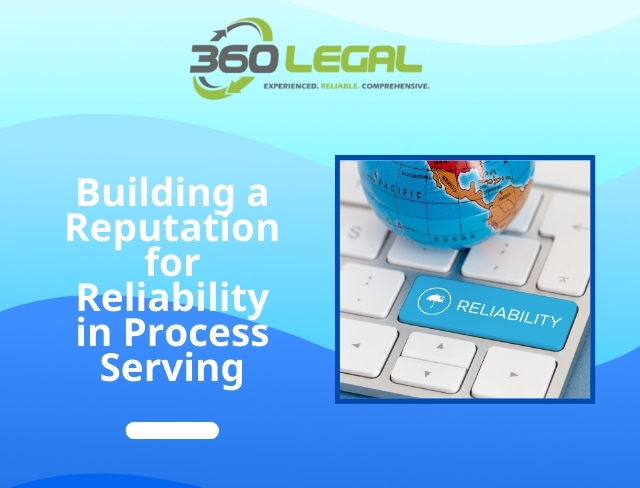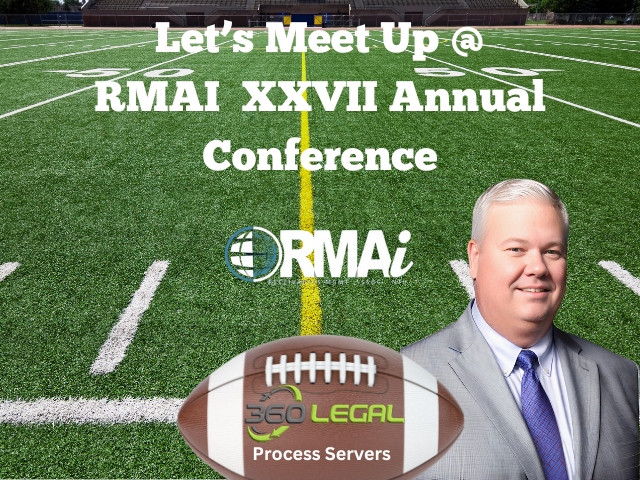AirDrop, and Service of Process – a National First For the first time ever, a court in the US authorized Service of Process by way of a tokenized airdrop. This came to our attention from an article published in Lexology by Shumaker, Loop & Kendrick. At 360Legal,...

Building a Reputation for Reliability in Process Serving
Establish Yourself as a Knowledgeable Professional We understand the ins and outs of legal procedures and rules that vary across counties and types of cases. Clients can trust that we know what we’re doing and will avoid mistakes that could jeopardize their...
Family Law Process Serving Essentials
Family law cases are often emotionally charged, requiring the empathy in handling legal documents. Process servers play a crucial role ensuring that legal proceedings run smoothly and efficiently. This guide explores the essential services provided by process serving...
Let’s Meet Up @ RMAI XXVII Annual Conference
Welcome to a Meeting of Minds at the RMAI Annual Conference! Are you heading to the Aria Hotel and Casino in Las Vegas for the RMAI Annual Conference from February 5-8, 2024? If so, we at 360 Legal would love the opportunity to meet you in person! We'd love to meet...
The Role of Process Service in Landlord-Tenant Disputes
Highlighting the Problem In the complex world of landlord-tenant relationships, disputes are unfortunately common. These disagreements can range from eviction issues, disputes over rent, to lease violations. The foundation of resolving these conflicts lies in the...










